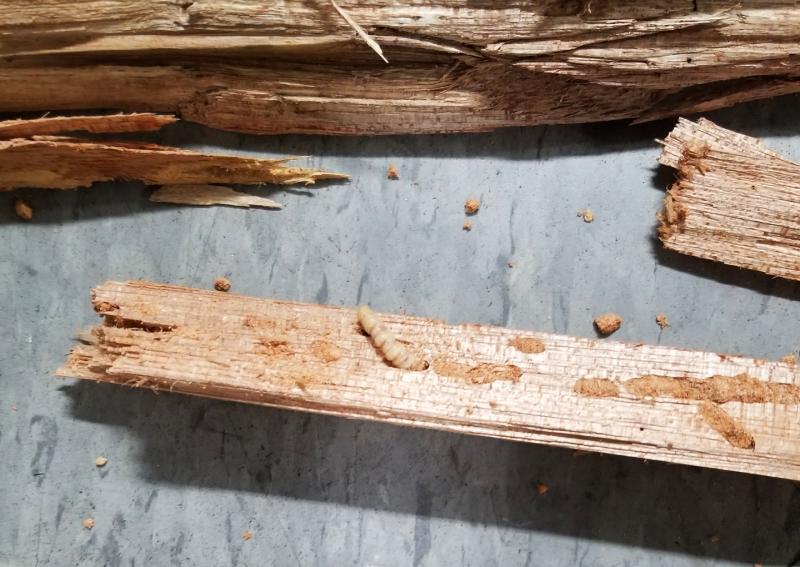WILMINGTON, Del. – Pumpkins and Halloween are synonymous this time of year and U.S. Customs and Border Protection (CBP) agriculture specialists are inspecting imported pumpkins to ensure that your jack-o-lanterns are free of scary hitchhiker insect pests.
Recently, CBP agriculture specialists intercepted one such hitchhiker, the flower longhorn beetle, in a shipment of Costa Rica pumpkins.

in shipment of Costa Rica pumpkins.
During an inspection October 4, CBP agriculture specialists discovered seven larvae boring through wood packaging material protecting the pumpkins and submitted the specimens to the U.S. Department of Agriculture entomologist. The entomologist identified the larvae as belonging in the subfamily Lepturinae, or flower longhorn beetles. The adult beetles are considered pollinators, but while in their larvae stage they bore beneath a tree’s bark, potentially damage healthy trees.
The importer chose to re-export the pumpkins and wood packaging material instead of destroying the shipment.
“CBP agriculture specialists continue to exercise extraordinary vigilance and conduct stringent inspections of vessels and their cargo in the fight to protect agriculture and economic prosperity locally, and nationally, from these invasive hitchhiker pests,” said Casey Durst, Director of Field Operations for CBP’s Baltimore Field Office.
During a typical day last year, CBP agriculture specialists across the nation seized 4,552 prohibited plant, meat, animal byproduct, and soil, and intercepted 319 insect pests at U.S. ports of entry.
See what else CBP achieved on a typical day during 2018, or by visiting www.CBP.gov.


